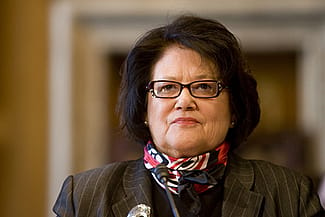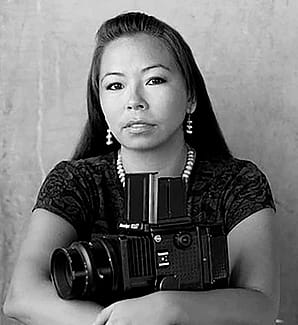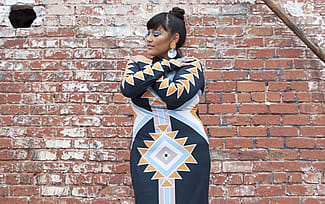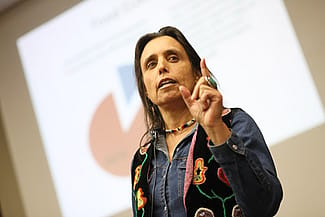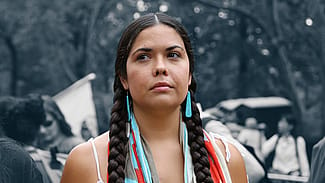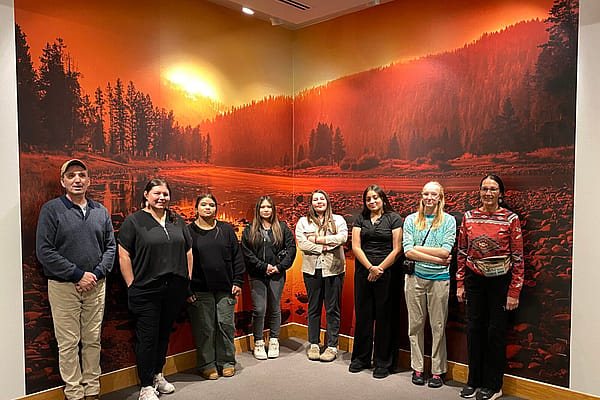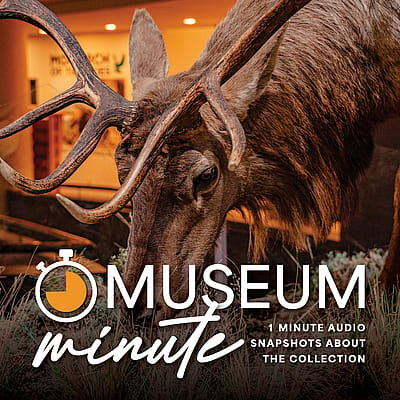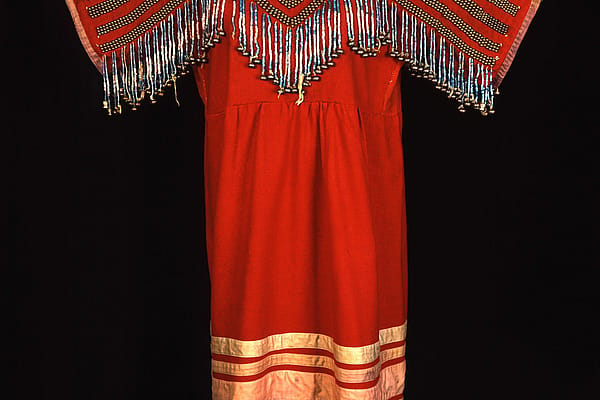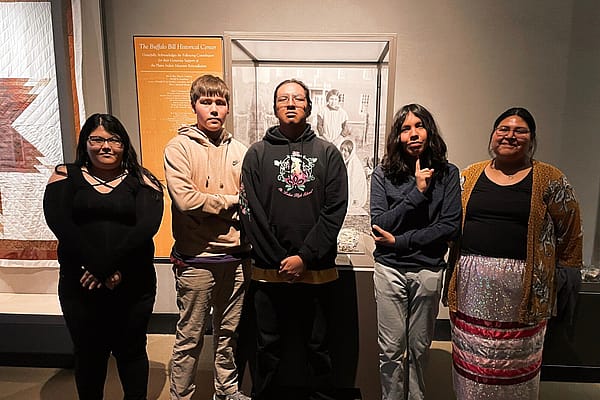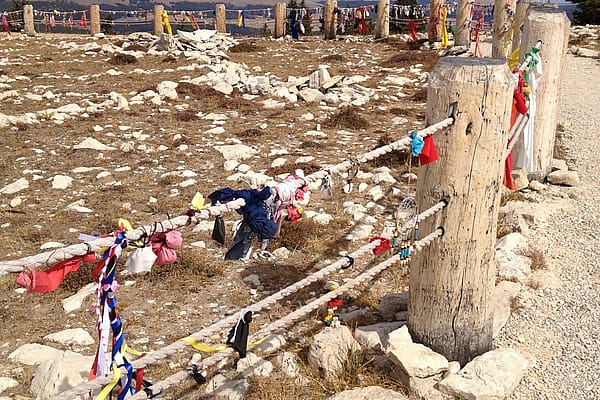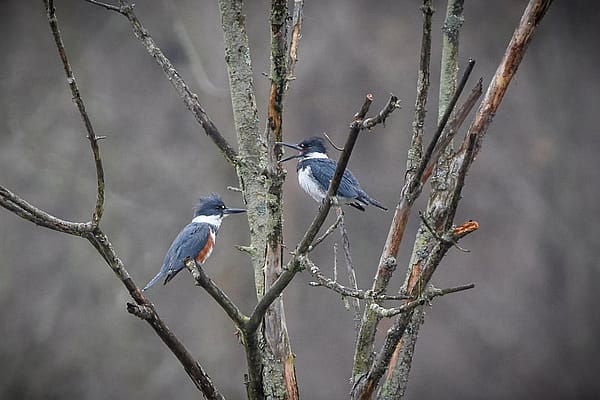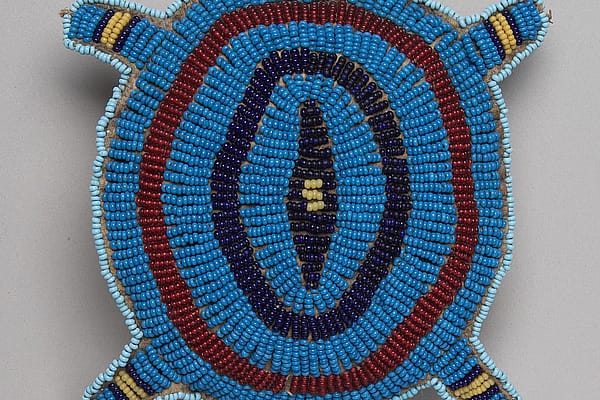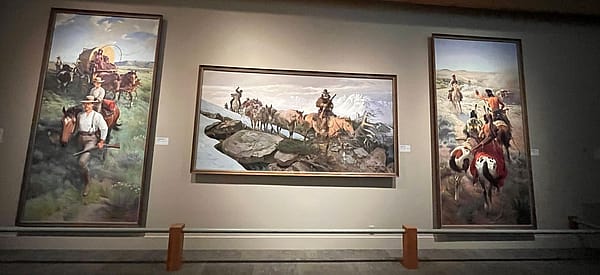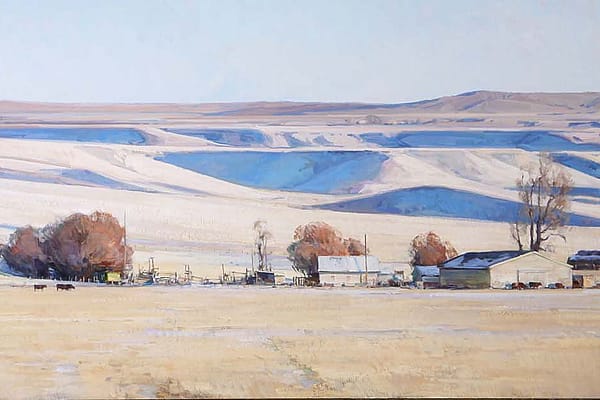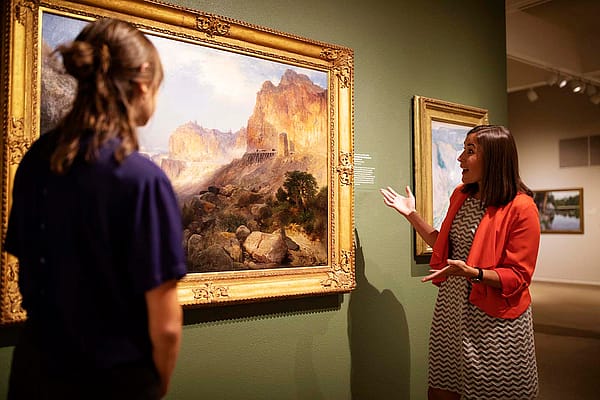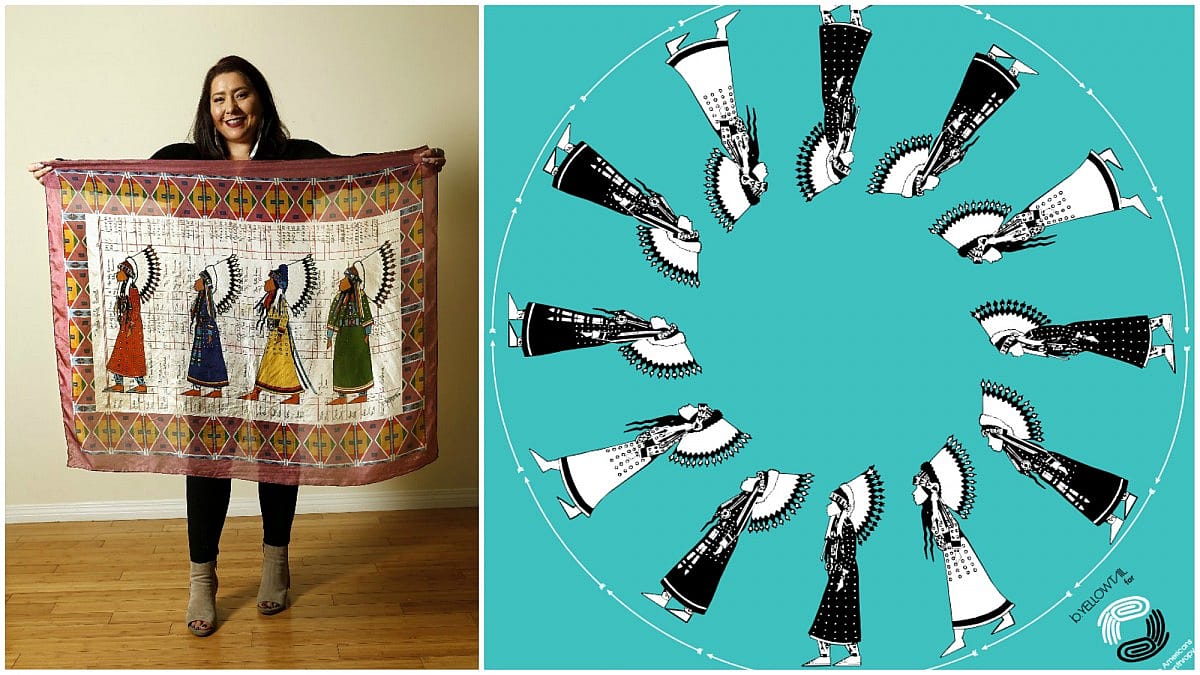
Women Warriors: Indigenous Women of the 21st Century
“It doesn’t matter where you come from, you deserve to dream and have the same opportunities as anyone else. You are allowed. Say it out loud and permit yourself. Be fearless! You are capable!” –Bethany Yellowtail
March is Women’s History Month. For the second year in a row, I was asked to speak to the Northwest College community on a topic related to Native American women’s history. I chose to discuss the work of eight indigenous women of the 21st century who are taking strides to better Native America. These women advocate for education, treaty rights, combatting stereotypes and appropriation, racial inequality, environmental sustainability, arts advocacy, and fair wages for Native artisans. The presentation was titled “Women Warriors: Indigenous Women of the 21st Century.” The lecture highlighted Elouise Cobell, Dr. Janine Pease, Bethany Yellowtail, Matika Wilbur, Dr. Adrienne Keene, Jaclyn Roessel, Winona LaDuke, and Tara Houska.
Elouise Pepion Cobell, Amskaapi Pikuni (Blackfeet) was born on Nov 5, 1945, and passed away on October 16, 2011. She was a tribal elder, Blackfeet tribal treasurer, activist, banker, and rancher. Cobell founded the Blackfeet National Bank, the first national bank on an Indian reservation and the first tribal member-owned bank which later merged and became the Native American Bank. Cobell won the prestigious MacArthur genius award in 1997 for her work in Native financial literacy. She would use her partial winnings to fund the largest class action lawsuits against the United States government for the mismanagement of Indian funds (Individual Indian Money Accounts) held in trust, affecting over 500,000 tribal members. On October of 1996, the suit was filed and remained in court proceedings for 15 years. In 2009, the Obama administration and Congress reached a settlement and awarded the plaintiffs in Cobell v. Salazar $3.4 billion, the largest United States’ history. The settlement had three stipulations:
- Payment of individual plaintiffs included in the class action
- $1.9 billion to land buy-back programs
- $60 million to a scholarship fund known as Cobell Education Scholarship Fund in her honor.
Since 2016, 1.7 million acres have been transferred back to tribes at market value and $40 million has been awarded in scholarship through the Cobell Scholarship Fund. In 2016 Cobell’s work on behalf of Indian Country was awarded the Presidental Medal of Freedom posthumous. This award is the highest civilian award. Her son Turk Cobell accepted on behalf of his mother and Indian Country.
Dr. Janine Pease, Apsaalooke (Crow) / Hidatsa, is an elder, educator, and advocate. Dr. Pease has had a long and successful career as a Native educator with many appointments and awards such as the National Indian Educator of the Year, the MacArthur Fellowship Award, and the ACLU Jeanette Rankin Award. She is also an advocate for minorities, Crow language preservation, adult education, and fair voting rights. Pease is the founding president of Little Bighorn College in Crow Agency, MT, a past president of the American Indian Higher Education Consortium (two terms), a director of the American Indian College Fund (for seven years), and was appointed by President Clinton to the National Advisory Council on Indian Education (for eight years). She was also a trustee of the Smithsonian’s National Museum of the American Indian. Dr. Pease has worked throughout Indian country at tribal and four-year institutions promoting college success for Native American and other minority students, as well as institutional cultural literacy. Currently, Dr. Pease is a faculty member at the Little Big Horn College, in Humanities & Social Science and the Accreditation Liaison Officer. Her recent labor of love is the Apsaalooke Chickadee Immersion School as its Principal, a youth immersion school focusing on language revitalization for the Crow.
Bethany Yellowtail, Northern Cheyenne/ Crow is a successful fashion designer and activist. Yellowtail is the CEO of the indigenous clothing brand B.Yellowtail, founded in December 2014. The line consists of articles of clothing which embrace Cheyenne and Crow tribal design elements. Yellowtail, a Graduate of Fashion Institute of Design and Merchandising, recognized that there was a place in high fashion for “Inspired Natives” vs “Native Inspired.” Her company focuses on Native American entrepreneurship which aims to combat Native stereotypes and Native appropriation in high fashion.
A large component of her brand includes the B.Yellowtail Collective, which supports First Nations artisans handcrafted work. Through her website, the artists in the Collective are paid fair wages for their art. Yellowtail recognized a phenomenon in Indian Country where artists were selling their work for below market and wanted to use her platform to allow artists to sell their work at fair and market wages. A major goal of her brand is to provide entrepreneurial initiatives for Native people. Yellowtail is also very vocal about her social activism. In 2016-2017 she was a participant at the Dakota Access Pipeline protests on the Standing Rock Sioux Tribe. Recently, she participated in the Women’s March in Washington D.C for a group called Indigenous Women Rise. She collaborated with artist John Pepion to create a silk scarf titled “Women Warriors.” Her work is highlighted in a web series titled alter-Native, a year in the life of Bethany Yellowtail.
Social media @b.yellowtail @sunroadwoman
Matika Wilbur is Swinomish/ Tulalip of Coastal Washington. She is a social justice advocate using photography as her platform. Wilbur is a graduate of the Brooks Institute of Photography. Her portfolio includes photographic projects We Are One People, a photograph collection of Coast Salish elders; We Emerge, a collection of contemporary Natives in urban settings. Her other work includes “iHuman”, presenting images interwoven with cedar bark about the human body. She recognized within her own community a need to photograph tribal elders which morphed into Project 562. Wilbur set a goal to “Change the Way We See Native America,” and through this goal, she aims to photograph all 562 tribes in the United States.
In 2012, Wilbur sold everything in her Seattle apartment to pursue Project 562. She opened a Kickstarter and the online world responded with Project 562 earning $213,000 of a $54,000 ask. She has since traveled through all 50 states combating the stereotype that Indians are more than the “leather and feathered vanishing race.” Her project continues to document tribes and her work can be found on social media and through the Project 562 website. Wilbur travels Indian Country and has photographed elders in rural Canada one month and the next month she’s hiked down to the rural tribes in the Grand Canyon.
Social media @Project562 @matikawilbur
Dr. Adrienne Keene is a Citizen of the Cherokee Nation. She is an educator, writer, and blogger. Dr. Keene is highly educated and earned her BA from Stanford University in Native American Studies and Cultural Anthropology and her doctorate from Harvard Graduate School of Education in Culture, Communities, and Education. Currently, she is an Assistant Professor of American Studies and Ethnic Studies at Brown University. Her professional work focuses on providing college access to American Indians, Alaska Natives, and Native Hawaiians. She also lectures on Native American education and cultural appropriation.
Dr. Keene is the curator and author of the highly acclaimed blog Native Appropriations. Native Appropriations is a forum which discusses representations of indigenous peoples such as stereotypes, cultural appropriation, media, and activism. Dr. Keene also uses her platform to advocate for better representation of Native Americans in pop culture which includes the removal of Indian mascots in professional sports, misrepresentation of indigenous intellectual property in clothing, literature, costumes, and more. Her work has been cited by BBC, NPR, Al Jazeera and many other media outlets.
Social media @NativeApprops
Jaclyn Roessel is Díne (Navajo). She is a consultant, writer, and poet. Roessel received her education at Arizona State University where she earned a BA in Art History and a Master in Public Administration. She has received awards such as the Arizona Humanities Rising Star in 2013 and was named one of Pheonix 100 Creatures You Should Know About. Formerly of the Heard Museum, Roessel left museum education to build her creative enterprise Grownup Navajo. She considers leaving her dream job as her “grownup Navajo” moment. As founder and president of Grownup Navajo, her company integrates Native American and Navajo teachings and perspectives, into museums, non-profits, and other arts & cultural institutions. She also explores guest curation, institutional cultural competency, and responds to social activism. Rooted in community action, her forums promotes indigenous WOMXN (a term inclusive of people who identify as women) in her work. Roessel uses her forums to promote positivity through culture, art, and poetry. She is also a Díne speaker and incorporates the Díne language into all of her projects such as Grownup Navajo and her greeting card company called Naaltsoos.
Social media @GrownupNavajo
Winona LaDuke is Anishinaabe from the White Earth Reservation in Minnesota. She is an environmentalist, political activist, and economist. LaDuke received her education at Antioch University and Harvard University. She has had a long career in activism focusing on topics such as sustainable development and treaty rights.
In 1996 and 2000, LaDuke was the Vice-Presidential nominee with the Green Party of the United States on Ralph Nader’s ticket. LaDuke has founded organizations such as the Indigenous Women’s Network and the White Earth Land Recovery Project. Currently, she is a Program Director of Honor the Earth, a Native environmental advocacy organization focusing on climate change, renewable energy, sustainable development, food systems, and environmental justice. She is also pursuing a personal project called “Winona’s Hemp” to grow hemp in the state of Minnesota for the use fibers in clothing and food sovereignty. She opened a Kickstarter to purchase a farm for her hemp crop which earned $132,337 of a $100,000 goal.
Social media @winonaladuke
Tara Houska, Couchiching First Nations of Ontario, CAN, is a Tribal Rights Attorney and National Campaigns Manager. She earned her education at the University of Minnesota Law School. Houska was a private attorney in Washington D.C. and left her practice to join the Dakota Access Pipeline protest in Standing Rock. She used her education to fight for indigenous rights She would spend six months at the camp.
Houska is the former Native American advisor to Senator Bernie Sanders during his 2016 presidential campaign. Houska considers her campaign involvement on of her proudest moments. She is also a co-founder of Not Your Mascot aimed at changing the names of sports teams who use Native American symbolism. Currently, she the Director of Honor the Earth alongside Winona LaDuke. Houska’s advocacy includes the Keystone Pipeline and other environmental issues. In 2017, she earned Good Housekeeping’s Awesome Women of 2017, by Melinda Gates. She is a contributor to Indian Country Today and Huffington Post.
Social media @zhaabowekwe and @honortheearth
Disclaimer: All images, ideas, and projects are the intellectual property of each woman featured in this post. Furthermore, the Plains Indian Museum at the Buffalo Bill Center of the West does not take any political stance as many of these women are activists and advocates. My goal was to highlight their work for Indian Country and how each one has personally affected my life.
Written By
Hunter Old Elk
Hunter Old Elk (Crow & Yakama) of the Plains Indian Museum at the Buffalo Bill Center of the West, grew up on the Crow Indian Reservation in Southeastern Montana. Old Elk earned a bachelor's degree in art with a focus on Native American history at Mount St. Mary’s University in Maryland. Old Elk uses museum engagement through object curation, exhibition development, social media, and education to explore the complexities of historic and contemporary Indigenous culture. She is especially inspired by the stories of Native American women who lived and thrived on the Plains. Facebook/ Instagram: @plainsindianmuseum
